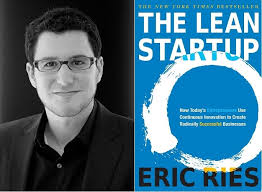
The Lean Startup
Entrepreneurship and startup thinking do not get the attention they deserve in peacebuilding circles. There has been some interest in recent years in impact investing and other themes that we have borrowed from progressive wings of the business world. However, startup culture not, especially since the problems with some of the more successful Silicon Valley firms have given that community something of a bad name.
However, when I went back and reread Eric Ries’s The Lean Startup I realized that few of those qualms were justified.
Quite the opposite. We can learn a lot from the way successful startups have worked.
First, as he pointed out when he wrote a decade ago, his logic applies to all innovative organizations, including NGOs and the not for profit world in general.
Second, we would be well served by adopting some of his key practices, including:
- Have a vision of what you want to accomplish and stick to it.
- Listen to your customers from the beginning. In this case, our customers are the local actors we work with and the rest of their society.
- Develop rapid prototypes. Don’t try to design the ideal product from the outset. You can’t. Aim for what he calls a minimum viable product.
- Measure. Learn. This is his main mantra about constant iteration. Build a prototype. Experiment with it. Measure what happens. Draw the lessons that let you improve the product.
- Be prepared to pivot if the evidence suggests you should.
Not everything Ries talks about is appropriate for peacebuilders. We definitely have to be more careful about building prototypes since people’s lives are often at risk when we do our work. Still, his ideas reinforce the existing trend toward serious monitoring and evaluation work in our field. If anything, he is asking us to speed up that work.
